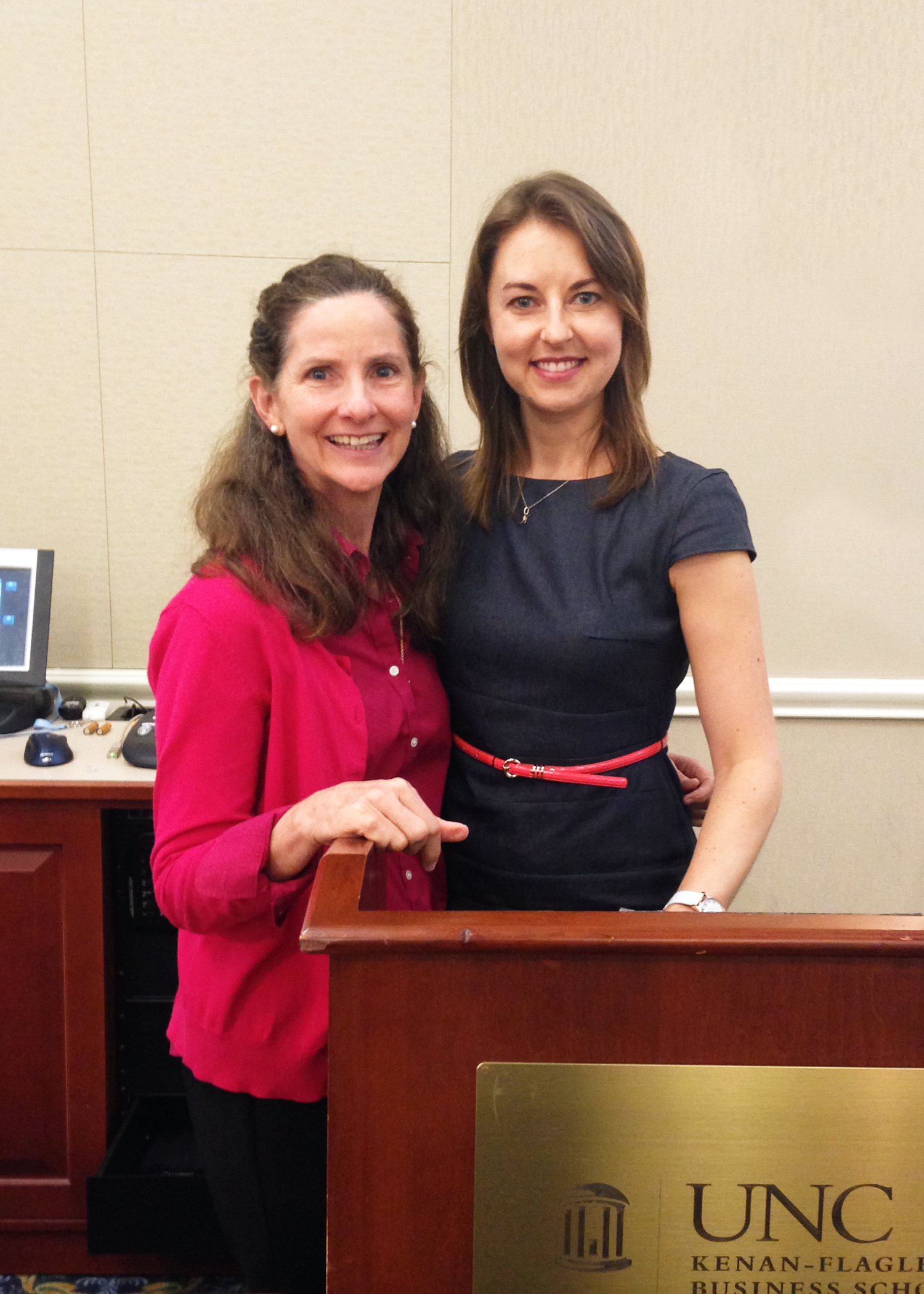
The Outreach and Support Intervention Services (OASIS) Clinic at the Center has begun a new program that focuses on health and wellness education for its clients. Created in April 2015, coordinators of STRIDE are already seeing positive changes in the participants.
STRIDE is a successful nutrition, education and weight-loss program for individuals with mental illness that was developed by Kaiser Permanente and adapted for UNC OASIS by Nina Fierro, MSW, LCSW, research instructor at OASIS, and Victoria Toles, RN, a nurse at OASIS. Individuals with mental illness often experience substantial weight gain as a side-effect of their medications and can, subsequently, develop chronic illnesses such as diabetes.
OASIS’ health and wellness program operates in eight sessions and focuses on basic nutritional instruction during weekly group meetings. “We tend to focus on the broad and fundamental, “explains Toles. “Rather than intimidating clients with calorie counting, we try to teach them how to make healthy choices like eating more fruits and vegetables and understanding serving sizes. For example, we show them that three ounces of meat—a good serving size for protein—looks about the same size as a deck of cards.”
Toles and Fierro have developed several effective methods for teaching their clients, including presenting visual examples, sharing personal experiences, and taking field trips to the Center’s Farm at Penny Lane for gardening and a “to go” bag of fresh vegetables. At the grocery store, there’s a lesson in reading nutritional labels.
Beyond eating healthy food, the program also emphasizes a healthy balance of diet and exercise. “During weekly meetings, we will often go for a walk as a group,” says Fierro, “which is a physical activity that our clients enjoy and will also frequently do on their own.”
“This type of light exercise is not only healthy, but it is also a great time for the group to interact with peers of their own age,” Fierro continues.
Group interaction is an important part of the program, and Toles and Fierro observed in the first session of STRIDE that the overall dynamic became increasingly positive as time went on. Meetings are mostly centered on group discussion, and clients are encouraged to share their successes and struggles.
“In general we try to focus on positive changes,” says Toles. “We want our clients to understand that being healthy and losing weight is an ongoing process that does not need to involve guilt or negativity.”
While OASIS is still working to find more effective methods of outreach, such as involving the families of the clients, the first few sessions have produced noticeable positive results. Participants in the program have experienced weight loss, reduced anxiety about meeting in groups, and even a reduction in hallucinations.
Fierro notes that meetings can be not only educational, but also fun. “When we meet as a group, the focus is not on the clients’ mental illness,” she says. “By helping them develop their own goals and structures for their health, we are empowering them to take control of their lives in a new and exciting way.”
OASIS is a team of psychiatrists, psychologists, nurses, and social workers that specializes in treating young adults who are experiencing early psychosis. The main OASIS clinic is located at Carr Mill Mall in Carrboro and a Wake County clinic has just opened.
